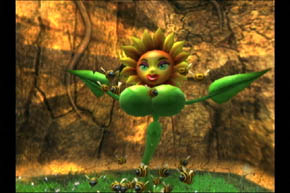When I write, I make everyone speak in proper English and infer from the words that they use as well as vocal descriptions if they have an accent. I don’t like writing a lot of “v’s” instead of “f’s” or “th’s” instead of “s’s” because, like right now, my spellchecker hates it and has that little angry red squiggle of death.
Just because I don’t like it, it doesn’t mean that I don’t like reading it. In fact, I love it. I love being able to read one line and have the character’s voice, accent and pronunciation just appear in my head, like magic.
I think that the difference between those who write phonetically and those who do not is control. Books are wonderful in that even highly detailed descriptions will be imagined differently by many people. I love having an item or character or area described to me and then asking someone else how they imagined it. Many times, they’re very different. I hate stories where a very detailed account of an area is given and a plot point hinges on a door placement or proximity. It takes away from the story for me, if I must imagine where a character is in relation to something else. Even the best writers in the world lose me when they get into this metaphysical nonsense, although that might be my fault more than theirs.
Writers have the right to control their readers, of course. Many times, they are leading their readers by the hand and showing off their work to them, like an eager parent showing off baby photos. That’s understandable, but books are meant to be enjoyed, not admired. You can love a book for its story, how it makes you feel and the characters, not because the chapter placement is symmetrical or that it starts and ends in the same scene. There’s a reason that Tarantino is such a good director – he mixes awesome storytelling with these neat different cinematic quirks. Yes, he might have stolen them from other films, but still.
On the topic of control, I enjoy how George RR Martin uses maps and areas within his books. Although there is a map at the front of his book and although I know the land of Westeros pretty well (thank you, HBO), I never feel trapped or pressurised to know the map back to front. Every time an area is brought up as being strategically sound, it is explained for us laymen. I like it.


